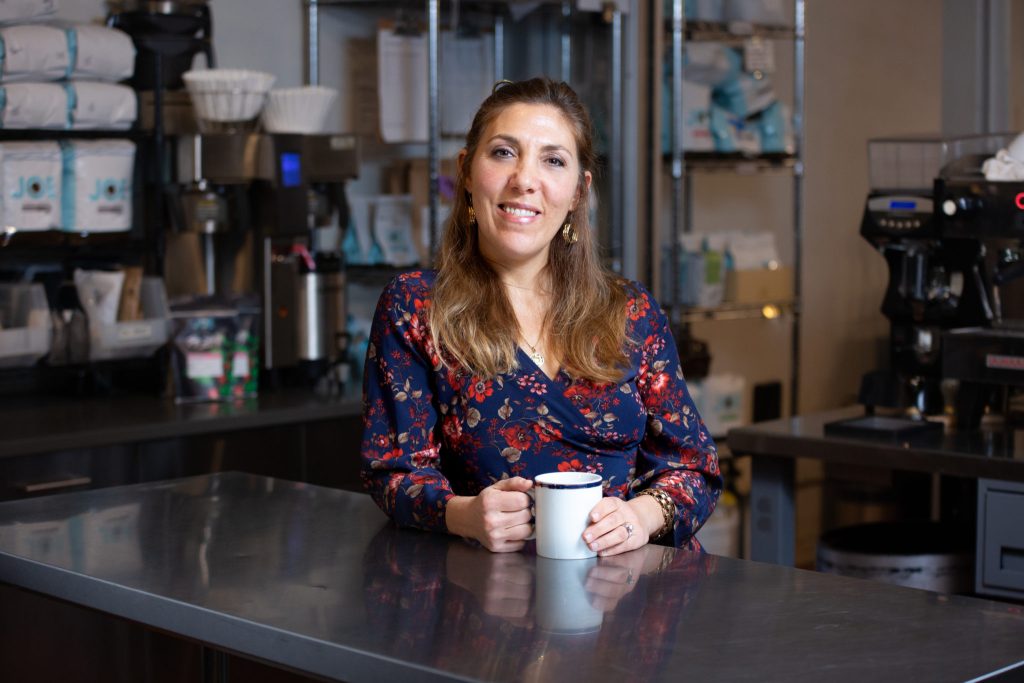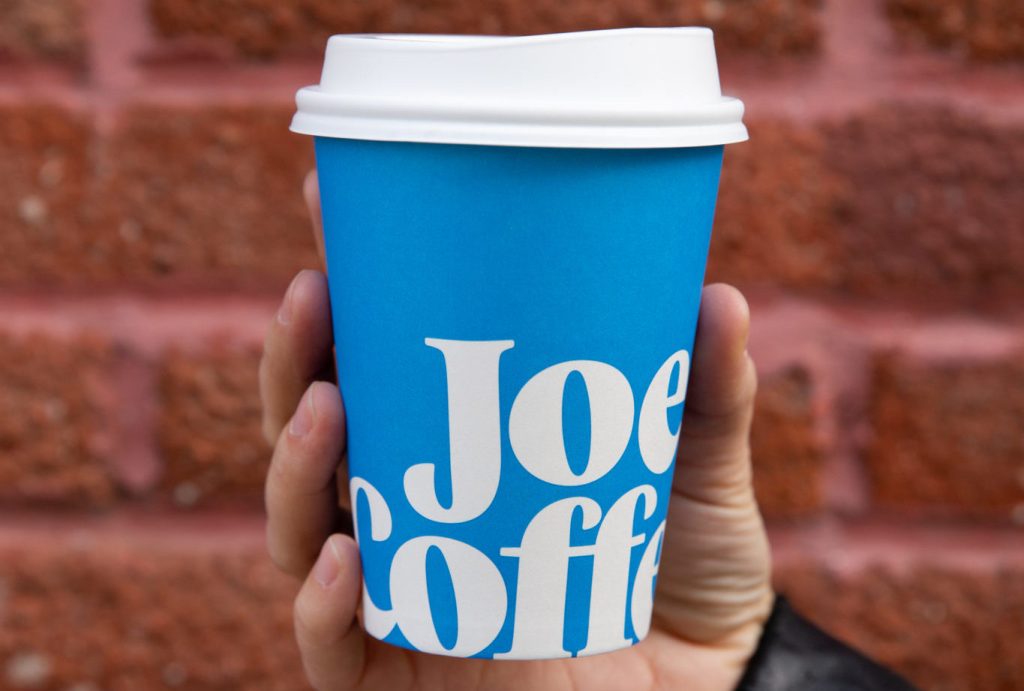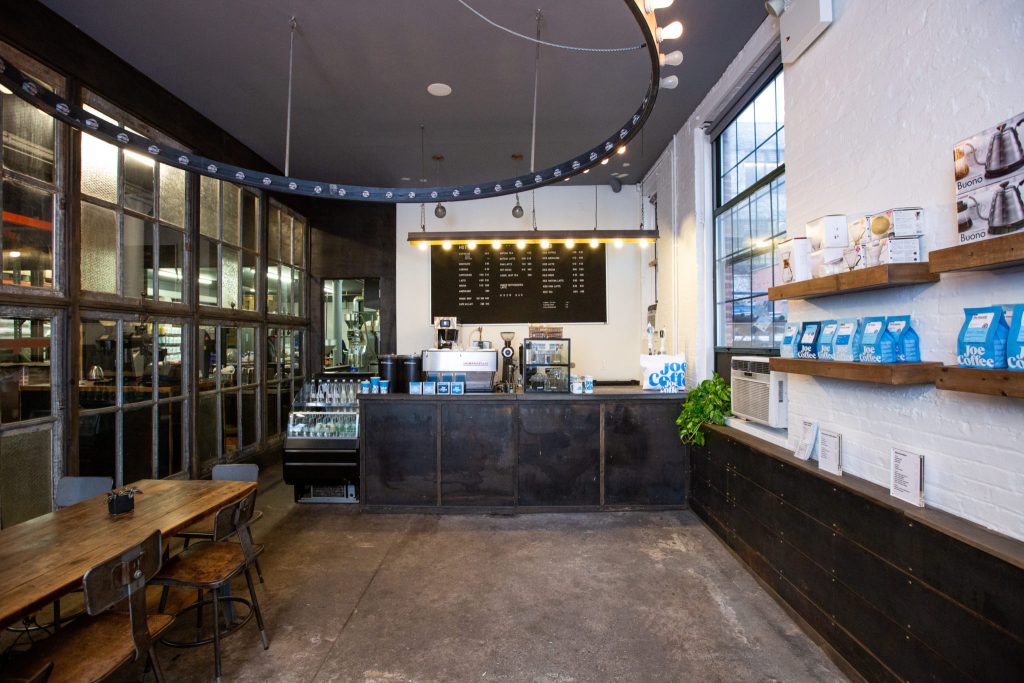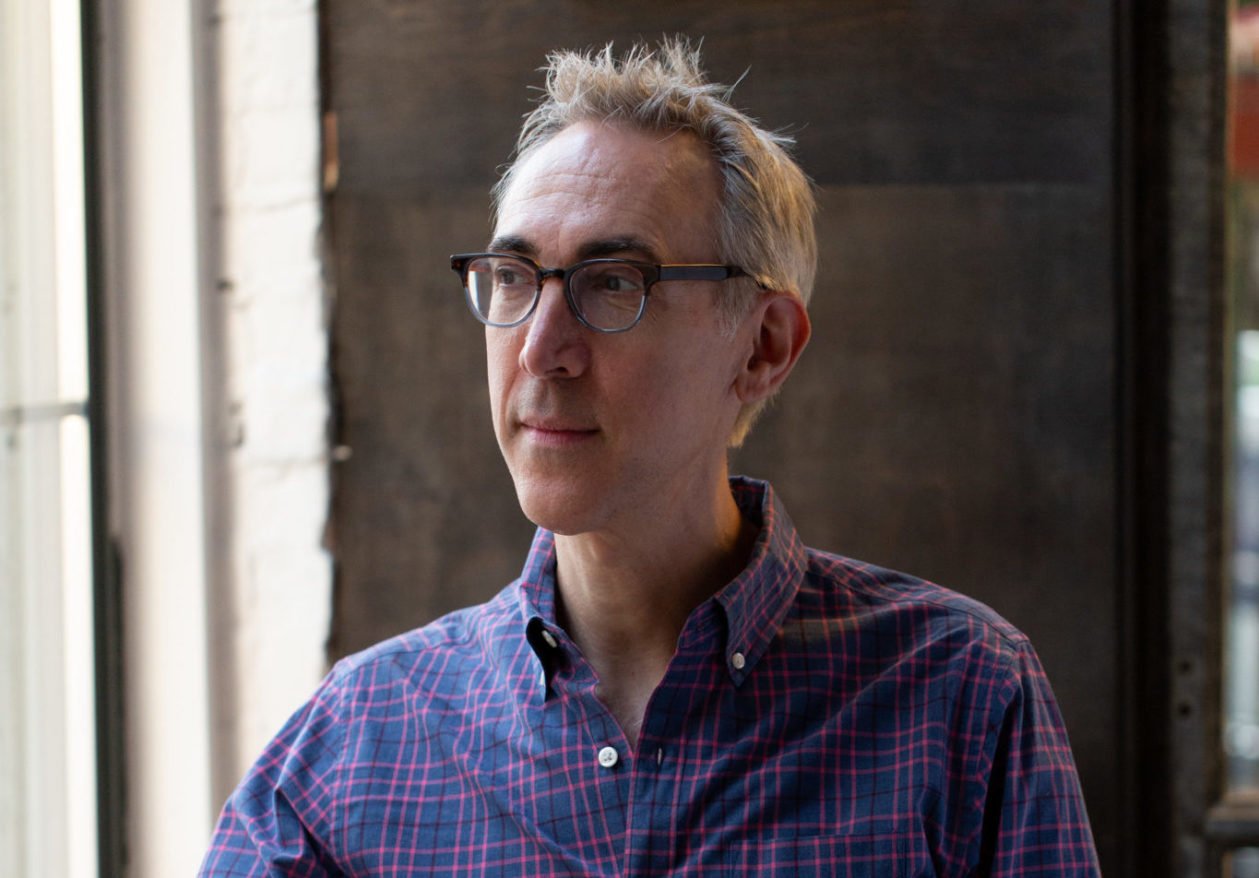It sounds a bit like an urban fairytale: Burnt-out 33-year-old Manhattan talent agent quits his ambitious corporate career, spends seven months subsisting on unemployment checks, considers opening a summer camp or a yoga studio and then, passing an empty storefront on a sunlit Greenwich Village corner, decides to open an artisanal coffee shop.
“There was never a strategy, but it was the ultimate in what seemed like this romantic life. It had to be in the Village, and it was about people coming in and having this community place. I loved coffee. I didn’t know much about it, but it just felt like that would be so fun and exciting,” says Jonathan Rubinstein, founder and CEO of Joe Coffee, which he opened on the corner of Waverly Place and Gay Street in 2003. The brand has since grown into a small empire employing 300 people across 20 New York City cafés, a brand new roastery, and catering, wholesale and online sales businesses.

In 2003, New Yorkers bought their coffee at Starbucks, traditional Italian cafés and bodegas, but what industry observers call the “third wave”—a movement emphasizing the careful sourcing and roasting of coffee beans, and the importance of skilled baristas—was virtually unknown.
“I did a ton of research, and that involved finding the right roaster and learning this now-ubiquitous thing called ‘latte art.’ I’m fairly certain that no one in New York City ever saw a rosette in their coffee until we opened,” says Rubinstein, who traveled to Seattle, Portland and Chicago to see prominent third-wave companies like Blue Bottle, Stumptown and Intelligentsia.
Almost immediately, Rubinstein, who opened Joe with his sister and parents, gained a devoted local following, including the neighborhood’s many actors and writers: Sarah Jessica Parker, Matthew Broderick and the late Philip Seymour Hoffman were all regulars. Parker’s friend Amy Sedaris sold her homemade cupcakes from a tiny display case. Time Out New York, the Village Voice and New York magazine all named Joe to their “best of” lists.

Seventeen years later, Rubinstein, 50, lanky and boyish with an incongruous head of grey hair, is starting the next chapter of this charmed coffee tale, confronting an interesting question: Can a company born as a scrappy, family-run enterprise retain its authenticity after receiving a multi-million dollar investment from Enlightened Hospitality Investments, a fund affiliated with Danny Meyer’s Union Square Hospitality Group?
“Will I still jump on my Vespa like I used to and go to every store? No. But we can try our darnedest to instill this idea that the bigger we get, the smaller we have to try to run,” Rubinstein says. “It’s important to us in hiring and training, this idea that everybody who walks in our door is an individual. You’re touching them for a moment every day. It might be transactional, but we’ll say, ‘Hi, welcome back, do you want your decaf oat cappuccino?’ Not a generic, ‘Can I help who’s next?’”
That approach resonated with EHI.
“For every deal we’ve done, we’re looking at close to 100 companies. What we’re looking for is a company we wish we’d thought of ourselves, with management teams we wish we’d hired,” says Mark Leavitt, managing partner at EHI. Leavitt won’t specify the terms of the deal, only confirming EHI invested between $10 million and $20 million in 2017. “What we saw within the third-wave coffee brands was that the better brands all were identified with a particular city: Intelligentsia in Chicago, Stumptown in Portland, La Colombe in Philadelphia. Joe was really the New York brand, and that was appealing to us.”
Coffee industry consultant Jeffrey Young agrees.
“The Joe Coffee company was really one of the genuine pioneers of the specialty coffee scene in New York City. Jonathan is considered an early pioneer, even a godfather, a loved and respected human being,” says Young, the editor and owner of the New York Coffee Festival and a managing director at the Allegra Group, a London-based management consultancy specializing in the coffee and foodservice industries.
Young, who has followed the New York coffee landscape for the past 20 years, estimates that the city’s coffee market has about $500 million in annual revenue. He notes that Joe is well positioned for what he predicts will be the next level of coffee shops.
“The next wave is scaling the boutique experience. That’s where Joe Coffee is: not afraid to be a chain, but maintaining very high standards,” Young says. “Something like Blue Bottle is slightly more upmarket, a bit less accessible. Joe’s still got those old school values that were important to their early days.”
Part of the accessibility lies in Joe’s roots: Rubinstein exudes a forthright American friendliness. He grew up as an intrepid entrepreneur in his native Cleveland, where he started both a cookie and a snowplow business as a teenager and founded the Stagecrafters Theater Camp, which is now 35 years old.
“I remember saying, ‘Well, we’re going to do coffee, but also we’re in New York City,” he says. “Everyone’s anonymous. Service is often gruff. Why don’t we be really nice?’ I’m a Midwesterner, I had a theater background and a lot of the people who we hired were actors who were really nice people people. I remember having the staff meeting the night we opened, and just being like, ‘Hey, be friendly and bubbly, and get to know people’s names and turn them into regulars.’ And that became what we were also known for and what we stood for.”

The menschy quality is genuine, says Rubinstein’s sister Gabrielle, 46, who oversees the company’s catering business.
“The best thing is that we’re creating jobs and a place where people enjoy working. That’s why we opened Joe: We wanted to open a place where we wanted to work,” says Gabrielle, a classically trained opera singer who is exactly four years younger than Jonathan. She was working “terrible” day jobs as a rental apartment broker and selling chocolate at Teuscher when her older brother signed the contract for the $6,750 monthly rent on the Waverly Place store, asked her to join him and gave her a 10 percent share of the business for her 30th birthday.
Suddenly, the Rubinstein family was building a business, with an enthusiastically ad hoc approach: A high school friend designed Joe’s logo; Jonathan managed the shop; his attorney father Richard took care of accounting and raised money from his golf buddies; his mother Alice, a retired choreographer, and his aunt worked behind the counter; Gabrielle had a hodgepodge list of responsibilities, from dealing with the health department to selecting art work and organizing special events and endeavors like Team Joe, a weekend running club that concluded every meeting with free coffee, and lectures by the rabbis, poets and philosophers who frequented the café.
Outside of work, the family remains remarkably close knit. The senior Rubinsteins, who raised Jonathan and Gabrielle in Cleveland but are originally from Brooklyn and Long Island, have returned to the city to be near their children and grandchildren. Richard Rubinstein sits on Joe’s board. Gabrielle and Jonathan, each of whom has a daughter, live in same Brooklyn apartment building.
“We’ve always just gotten along really well,” Gabrielle says. “I don’t think we’ve ever really had a fight. We trust each other.”
While the siblings work together with notable ease, the company’s expansion has not been without some missteps. Its only foray beyond New York, opening two shops in Philadelphia in 2013, recently failed, and the cafés will close by year end. A dishonest contractor for their 2017 World Trade Center café disappeared with a significant amount of the Rubinsteins’ money and ran costs up to triple the expected budget, creating what Jonathan says was a “very stressful time” for his family. Poor sales recently led them to close their East 8th Street outpost. Even the company’s original tag line, the somewhat awkward “Joe: The Art of Coffee” has “haunted us for years,” Rubinstein says.
Those sorts of challenges, Rubinstein says, made restaurateur Danny Meyer’s involvement all the more appealing.
“In one of the early board meetings, Danny said, ‘Who are you guys, really?’ And I gave my answer: great hospitality, neighborhood feel, great coffee. And he said, ‘It’s not enough, you need to really figure out where you fit into the market, what Joe says to people, and what you want it to say going forward.”
To formulate an answer, Rubinstein worked for nearly two years with the San Francisco branding firm Godfrey Dadich Partners.
“It was actually an emotional process and a super deep dive into figuring out every word of what the mission was and what our position was in the market,” Rubinstein says. “There was a lot of—criticism is the wrong word, but it was breaking down what I always thought we were, and also having to listen to how other people interpreted what we were.”

The just unveiled results include a new logo using a new shade of “Joe blue” and featuring the iconic bench from Joe’s Waverly Street café, as well as physical upgrades to cafés on the Upper East Side, Union Square and in Chelsea.

The new Joe Coffee Roastery, Café & Lab, a 4,000 square foot space in Long Island City, is intended to supply Joe’s growing wholesale business while appealing to coffee geeks—there are daily Single Origin offerings and classes like Explorations in Roasting—and neighborhood customers.
“This is a super important part of our identity: We’re not just retail, we are coffee roasters at our core. We have a big team of people that are all over the world, eyeing green coffee, sourcing,” Rubinstein says. “We’re going to try to make that really a central hub. We want staff to be there, we’re going to bring customers there. We’re going to do public education and really establish that we’re New York City’s brand, and we’ve grown up here.”
The process of growing up presents new challenges, with Rubinstein and EHI looking to expand to new markets, including possible commuter suburbs, and trying to tread the delicate balance between staying authentic and saturating the market.
“It’s a tough challenge, because the more outlets you get, the less special you are,” coffee consultant Young notes. “Operationally it’s a challenge to maintain staff as you get bigger. You become more formulaic naturally. In many ways, that can be a good thing because you’re getting more consistency, but you may be attracting fewer of the coffee purists that you had in the earlier days.”
For his part, Rubinstein says, he’s humbled and ready.
“Never in my wildest dreams would I have thought that this slice of life, this 30 seconds in people’s lives, that 17 years later, that would still be part of their daily ritual. I’m not kidding, I get a little lump in my throat,” he says. “Whatever Joe becomes, I feel very blessed.”






